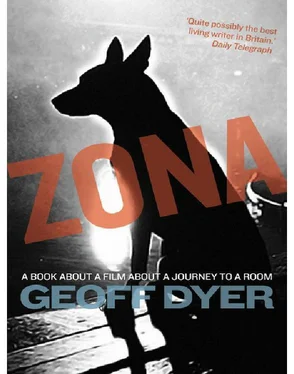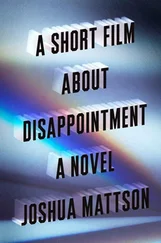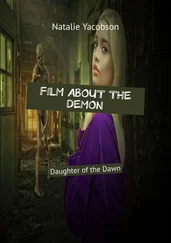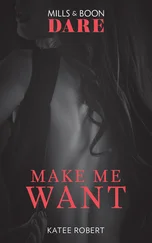43A view occasionally endorsed by Tarkovsky, in a 1981 interview, for example: ‘I completely agree with the suggestion that it was Stalker who had created the Zone’s world in order to invent some sort of faith, a faith in that world’s existence.’ And again, in 1986: ‘The Zone doesn’t exist. It’s Stalker himself who invented his Zone.’
44This would certainly seem to be the lesson of The Return and The Banishment by Andrei Zvyagintsev. The Return (2003) starts spectacularly with a group of boys jumping from a high watchtower into deep water. Ivan, the youngest of a pair of brothers, is scared of making the jump so his brother, Andrei, and the others leave him up there, shivering and ashamed. The next day they learn from their mother that their father has returned after an absence of twelve years. Played by Konstanin Lavronenko (who looks like Russia’s answer to George Clooney and José Mourinho), he’s evidently some kind of gangster. The three of them, father and two sons, go on a road trip but it’s more like a pirated Russian offshoot of the Duke of Edinburgh’s Award scheme than a vacation. The father is a stern taskmaster; he has the unyielding harshness of a man who has done time and learned how to survive in the brutal world of the Russian prison system. He bullies and scares them and it all starts to seem like a test of the boys’ manly mettle. The buried loot or hidden treasure or whatever it is the father is trying to retrieve leads, after numerous setbacks, tests and diversions to a remote island — the father makes the boys row there after the boat’s engine gives out — dominated by another rickety old watchtower. Vanya climbs the tower, the hated father climbs after him, falls and dies. As a result of the skills the father has taught them in the course of their trip the boys are able to travel back home, without the father’s body, which sinks with the boat on the crossing back from the island.
The Return cries out to be interpreted as a return to— and extension of — the Zone, to the kind of cinematic space or vision discovered by Tarkovsky. (Even the walls of the abandoned building where the boys play and fight in the opening scenes seem Zonal; on the island there is a verdant meadow, in the middle of which stands an abandoned hut.) Tarkovsky bequeathed his progeny a sense of the visionary potential of film, of space. But he is a hard and gruelling taskmaster. If you want to follow his example you have also to kill him off. Once that has occurred you can make your own way into new, uncharted cinematic wilderness. I apologize for this explanation — one part Harold Bloom and one part ill-digested psychoanalysis— but you take the point.
The problem — though this becomes fully evident only with Zvyagintsev’s next film — is that he has not killed off the father, has not shaken off the huge and inhibiting debt to the master. Or perhaps, having killed him off in The Return, Zvyagintsev devotes the whole of The Banishment (2007) to atoning for this crime. Three of the first half dozen shots evoke, in turn, Nostalghia (car driving through landscape, curving out of and then back into shot), Stalker (bleak industrial zone, freight train) and Solaris (car hurtling into urban abyss). Thereafter it’s impossible not to succumb to spotting Tarkovsky allusions and references: kids leafing through books, or gazing at an orange fire (albeit in a hearth); Bach; Leonardo (in the form of a jigsaw puzzle of The Annunciation being completed by children). So overt is the Tarkovsky bequest that, at one point, when the wife and mother, Vera, takes a sip of her drink and puts the glass on the table one half expects her to start moving it telekinetically. She is pregnant but the child is not her husband’s (Lavronenko again, back from the dead or, if you prefer, returned from The Return); it — i.e., the film — is Tarkovsky’s. The house where all this occurs is located in a barren and beautiful landscape that, like the altogether more fecund setting of Mirror, is replete with childhood memories. ‘Why isn’t the creek flowing?’ asks Kir, the little boy, of his father, Lavronenko. Because, I found myself silently responding, Uncle Andrei has used it all up. ‘Did you see it [ i.e., Uncle Andrei’s ] flow [of images] ?’ asks Kir again. ‘I saw nothing else,’ says Lavronenko, taking the words out of my mouth. By the end, needless to say, the rains replenish the creek, which starts to flow, turning it into a Zoney stream, complete with everyday detritus hallowed by the fact of being filmed. There is more to The Banishment than its Tarkovsky infatuation. Doubtless, I am guilty of the crime of which I am accusing Zvyagintsev: being so absorbed by Stalker that I can see nothing but Tarkovsky, so steeped in his view of the world that I mistake it for the world itself. Certainly Tarkovsky is not the only director whose work is, as they say, cited or sighted but he is the dominant force and I can think of no other film so dominated — to the point almost of self-immolation — by the work of another director.
The end of The Banishment echoes the beginning with a shot of an almond tree and a car winding its way along the road that runs beside it. Except this is not quite the same as the beginning, for the camera then tracks to the side to some peasant women — who seem to have stepped out of a Brueghel painting (which carries with it the tacit suggestion that they have also stepped out of a Tarkovsky film, at one remove). Suddenly we’re in a different film. It’s as if, playing alongside the movie we’ve just seen, was another, which we now have the option of watching.
This artful if rather distracting sideways shift into another movie alerted me to something that I had, as it were, known but not realized about Tarkovsky. Like all the greatest filmmakers he immerses you so completely in his world that it never occurs to you — unless it is by design, à la Godard at the end of Le Mépris (a deliberate limiting that serves also as a deeper immersion) — that the world on-screen ceases to exist at the edges of screen. The best directors all invert Coriolanus’s claim that there is a world elsewhere. No, the world beyond the screen is just a continuation of the world we are seeing. To either side and behind there is more of the same. We are not even in a cinema; we are in a world. Or, rather, there is nothing but cinema; there is only the Zone.
45If she’d asked me I’d have said yes in an instant. I’d love to have a dog. Or would I? The fact that my wife and I have not got a dog despite thinking about getting a dog, mulling it over and talking about nothing else for five years, suggests that maybe we don’t want a dog. In some way, though, this dog — a dog that looks more like a concentrated idea of dog than any particular breed of dog — is there to remind me that I do want a dog, that it’s not for nothing that we spend all our time talking about getting a dog and looking at dog websites and that we already have a name for the dog that we’ve not got around to getting: Monkey, named after Stalker’s daughter, even though this is a potentially confusing name for a dog, just as Cat or Fish would be. But then — this is why we go round in circles the whole time — we also know that the reason we have not got a dog yet is because there is only one dog we want, Dotty, our friends’ lurcher. That would be my deepest wish: for our friends suddenly to say, ‘You’ve been such good friends to us over the years that we’ve decided to give you Dotty, even though a lurcher needs lots of open space and you don’t even have a garden and she will miss us and the Kent countryside so badly that she’ll probably just pine away and die in a fortnight.’
Читать дальше












